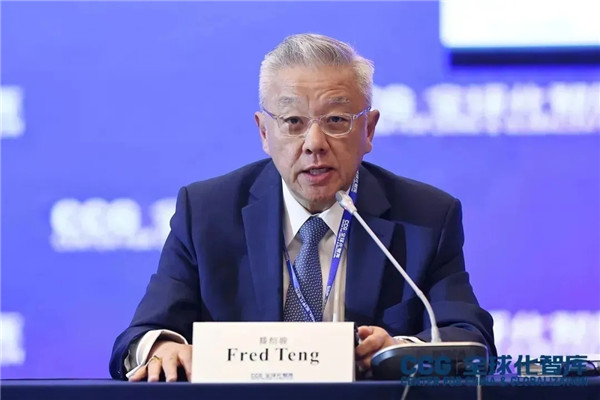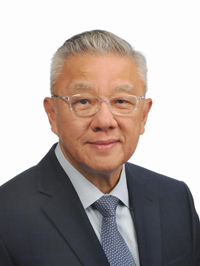Fred Teng: Export Controls-A Strategic Misstep for U.S. Industry
June 08 , 2025 By Fred Teng | President of AmericaChina, Executive Council Member of CCG.
By Fred Teng | President of AmericaChina, Executive Council Member of CCG.
In a recent escalation of U.S.-China tensions, the U.S. Commerce Department suspended export licenses for aviation technologies to China’s state-owned aircraft manufacturer, COMAC. This directly impacts the LEAP-1C engine, developed by CFM International—a joint venture between General Electric (GE) and France’s Safran—which powers China’s C919 airliner.
While intended to curb China’s aerospace ambitions, this move risks significant harm to U.S. industry, workers, and long-term competitiveness.
The aerospace sector is a cornerstone of U.S. manufacturing and exports. Companies like GE and Honeywell have long supplied engines and avionics to global aircraft manufacturers, including COMAC. Suspending export licenses severs these partnerships, potentially costing GE hundreds of millions in revenue and disrupting its extensive U.S.-based supply chain.
These impacts go beyond corporate balance sheets. From engineers to factory workers, thousands of American jobs are tied to aircraft engine production and maintenance. Entire regions that depend on aerospace contracts face uncertainty. Small and medium-sized enterprises (SMEs) in the supply chain—often with narrow margins—are especially vulnerable to order cancellations and prolonged disruptions.
Strategically, the export controls may backfire. COMAC’s past reliance on foreign components has limited its global reach. But by cutting off U.S. technology, the U.S. may accelerate China’s push for self-reliance. Already, Beijing is investing heavily in indigenous engine development. Over time, this could permanently displace U.S. suppliers from what is projected to be the world’s largest aviation market.
Beyond aerospace, this pattern echoes across the broader tech sector. Over the past eight years, U.S. administrations have escalated export controls in an effort to constrain China’s rise in strategic technologies. The timeline tells the story:
·2018: The Export Control Reform Act expanded executive authority to restrict exports.
·2019: Huawei was added to the Entity List, barring U.S. firms from supplying it.
·2020: The Foreign Direct Product Rule was revised to cover foreign-made items using U.S. tech.
·2022: Sweeping restrictions were introduced on semiconductor and advanced computing equipment.
·2023–2025: Controls expanded to AI chips, electronic design automation software, and chipmaking tools.
The economic costs of these actions have been steep. Nvidia alone reported a $2.5 billion loss in one quarter from AI chip restrictions, with forecasts of $8 billion in future losses. The semiconductor industry, which relies heavily on Chinese demand, has experienced falling sales and shrinking global share.
The ripple effects are nationwide. U.S. manufacturing contracted for a third consecutive month by May 2025, with orders, production, and hiring all falling. SMEs along the aerospace and tech supply chains have been hit hardest, struggling to survive in the face of reduced demand and geopolitical uncertainty.
Ironically, these controls have pushed China to accelerate its technological independence. Huawei and SMIC have made major strides in chip and telecom innovation, reducing their reliance on U.S. suppliers. This shift threatens U.S. influence in setting global standards and risks permanently weakening America’s competitive edge.
Diplomatically, the controls have strained relations with allies and raised alarm among trading partners. Embedding them into trade agreements may further isolate U.S. firms from global markets. Many countries now question the reliability of the U.S. as a stable supplier, prompting them to diversify away from American technologies, an erosion of market share that may not be recoverable.
While protecting national security is a legitimate concern, the discriminatory bias against China, with sweeping and often blunt application of export controls has too often yielded unintended consequences. The cost to the United States in jobs, innovation, and international credibility is mounting.
A smarter strategy would distinguish between legitimate security threats and commercial competition, and focus on revitalizing American R&D, improving domestic production capacity, and fostering international collaboration. Unilateral restrictions may offer short-term leverage—but over time, they risk weakening the very industries they aim to protect.
The past eight years have offered a cautionary tale. It’s time to shift from reactive restriction to strategic renewal of partnership.
Fred Teng is President of AmericaChina, he also serves as an Honorary Fellow of the Foreign Policy Association, Senior Advisor to the China-United States Exchange Foundation, Executive Council Member of the Center for China and Globalization, and Visiting Professor of the School of International Studies, Sichuan University. He studies and analysis focus on the on the history, governance, and the foreign and domestic policies of both China and the United States.
From CGTN, 2025-6-8
Topical News See more







